How Twins Received the Gift of Life
This month, we’re bringing you stories of individuals who have undergone life-saving medical procedures. While life-and-death situations are common, one organization has made it their mission to save the lives of minors each year. Gift of Life Belize, an initiative of the Rotary Club of Belize, is dedicated to ensuring that children with congenital heart defects receive the gift of life. This entirely voluntary effort highlights the pressing need for accessible medical care and resources in Belize where congenital heart defects are concerned. Sabreena Daly tells us more in this week’s Look on the Bright Side.
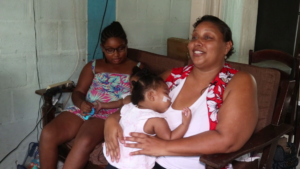
Bianca Domingo
Bianca Domingo, Mother
“I take two hours to clean my house and they can trash it in five minutes. And before the surgery, they were not, they were not that active. So even though I get tired cleaning up after them, I’m so happy that they’re very active now.”
Sabreena Daly, Reporting
These two active babies, Bianca Domingo refers to, are now fast asleep missing out on their television debut of how they experienced a medical procedure that saved both of their lives. Jossiah and Leah are one-year-old twins.
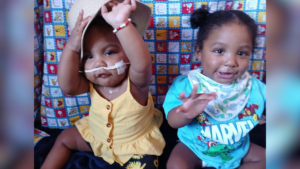 Bianca Domingo
Bianca Domingo
“Leah’s the boss. She’s very bossy, but she’s such a loving baby. And Josiah, he’s just active and very playful. But both of them are sweet babies.”
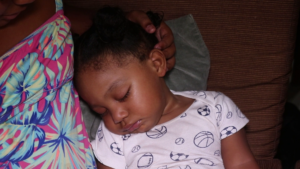
Whether fraternal or identical, the bond shared as twins can only be understood if you are one. But this pair of fraternal twins, Jossiah and Leah, had a connection much deeper than their genetic ties. They were connected from the heart. Their mother would learn how serious this was when she discovered that her son was born with holes in his heart.
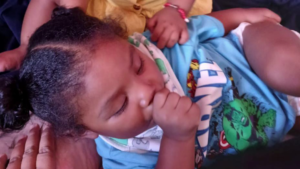 Bianca Domingo
Bianca Domingo
“So I went to the appointment at the Lions Club and I took Josiah first. And the doctor asked me why I had Josiah at 33 weeks. I explained to him that there were twins and sometimes twins don’t go the full term.”
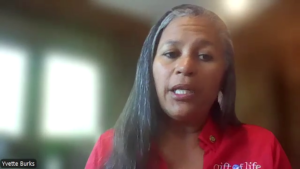
Yvette Burks
Yvette Burks, Chairperson, Gift of Life Belize Project
“He said, hold on, you have twins. And she said, yes. And he said, could you please go home and bring the baby girl? And she said, why? And he said, because it’s frequent that if you have a pair of twins and one has a congenital heart defect, the other one might too. So she actually went back for the baby girl, and brought the baby girl to the clinic. And we saw the baby girl.”
One in every one hundred children is born with a form of congenital defect and heart disease is the most prevalent of them. While there are numerous theories as to what causes the medical condition, unattended cases can quickly become fatal. Yvette Burks is the chairperson of Gift of Life Belize, an initiative of the Belize Rotary Club.
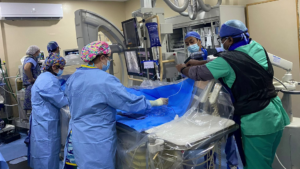 Yvette Burks
Yvette Burks
“In developed countries, many of those cases are rushed into surgery if it’s urgent, or they’re watched until they’re the size where the surgery is best, and surgery is done, no questions asked. In our country, the average child, if it’s something that needs surgical intervention, would live until they die, simply because they were born in the wrong geographical location. And we at the Rotary Club of Belize’s Gift of Life Belize believe that every child deserves a chance for a happy and healthy future. And that is our objective.”
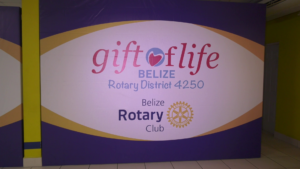 Gift of Life Belize has provided cardiac diagnosis and support to children from birth to eighteen for over four decades. Since 1977, Gift of Life Belize has done surgeries for more than five hundred minors. This year alone, the project has provided over four million dollars worth of care to the pediatric population affected by congenital heart defects.
Gift of Life Belize has provided cardiac diagnosis and support to children from birth to eighteen for over four decades. Since 1977, Gift of Life Belize has done surgeries for more than five hundred minors. This year alone, the project has provided over four million dollars worth of care to the pediatric population affected by congenital heart defects.
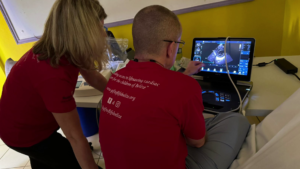 Yvette Burks
Yvette Burks
“There are very few conditions that we cannot help. It’s beyond help. And those are so sad, but there are so many conditions that we can help and the specialists that we bring in are able to tell us exactly what’s wrong with the child and whether or not surgery or some kind of procedure will be able to correct the problem and help us to prioritize that list. We’re able to partner through our network and it’s quite extensive at this stage to get the children the care that they need surgically either here in Belize now at the cat lab, because we also bring in our cardiologists to do corrective procedures here at the cat lab.”
This year, Bianca Domingo was one of those parents who got aid for her two babies, Jossiah in Belize and Leia in Texas.
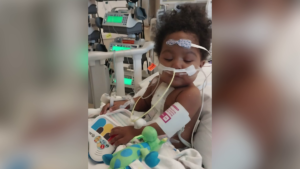 Bianca Domingo
Bianca Domingo
“Two of Josiah’s holes closed a couple months after, but the P.D.A. was still open. Her PDA was still open as well. I believe a few months after that, a doctor came in from the United States and they did a procedure at the KHMH in the cat lab on both of them. However, it worked on Josiah, but it did not work on Leah.”
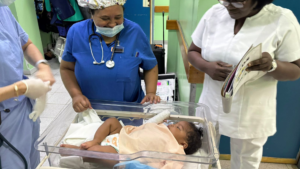 Yvette Burks
Yvette Burks
“He was able to get his closed here. This was in February. And they went in to do layers, and they did the procedure as far as they could, but when they did her measurements, it turned out that she had, for lack of a better term, kind of a strange entrance to where they needed to place the little device that would have closed that hole. That made it a dangerous procedure to attempt here in Belize.”
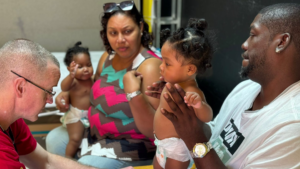 Bianca Domingo
Bianca Domingo
“Basically they assist me with almost everything. where to stay, with a host family, and the surgery and the hospital. They are actually connected to another group in Texas that is called Heart Gift. So they work together in aiding families that need assistance with these kinds of situations.”
Rotary’s Gift of Life program is essential for patients in need. While Belize is slowly expanding its medical resources, severe heart defects often require multiple surgeries, lifelong medications, and preventative measures to maintain heart function and overall health. For some, a heart transplant is their only hope.
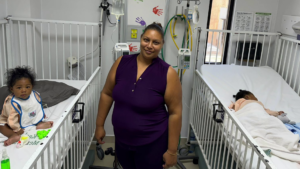 Yvette Burks
Yvette Burks
“The big message really is that there is one in every one hundred live births with a heart problem. It could be your child, it could be your grandchild, it could be your niece or nephew. There will be a baby born in every hundred live births, whether you live in Belize or Japan or the U. S. or Korea, it doesn’t matter where you live. So we have worked very hard to foster these relationships, which can afford our children to have their gift of life saving surgery so that they can come back to Belize and live happy, healthy and productive lives.”
Domingo recognizes that had she not accessed this service, her twins may have been living a very different lives and her family may have been two members short.
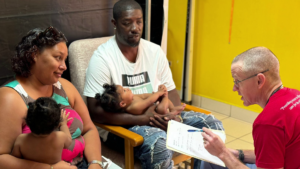 Bianca Domingo
Bianca Domingo
“I don’t believe they would have made it to two years old. So it’s really hard. They really save their lives, you know.”
The twins’ progress will be monitored over the next five years and they are expected to go on to live normal lives. Looking on the Bright Side, Im Sabreena Daly.
To support or learn more on the works being done through the gift of life, visit gift of life belize dot org.





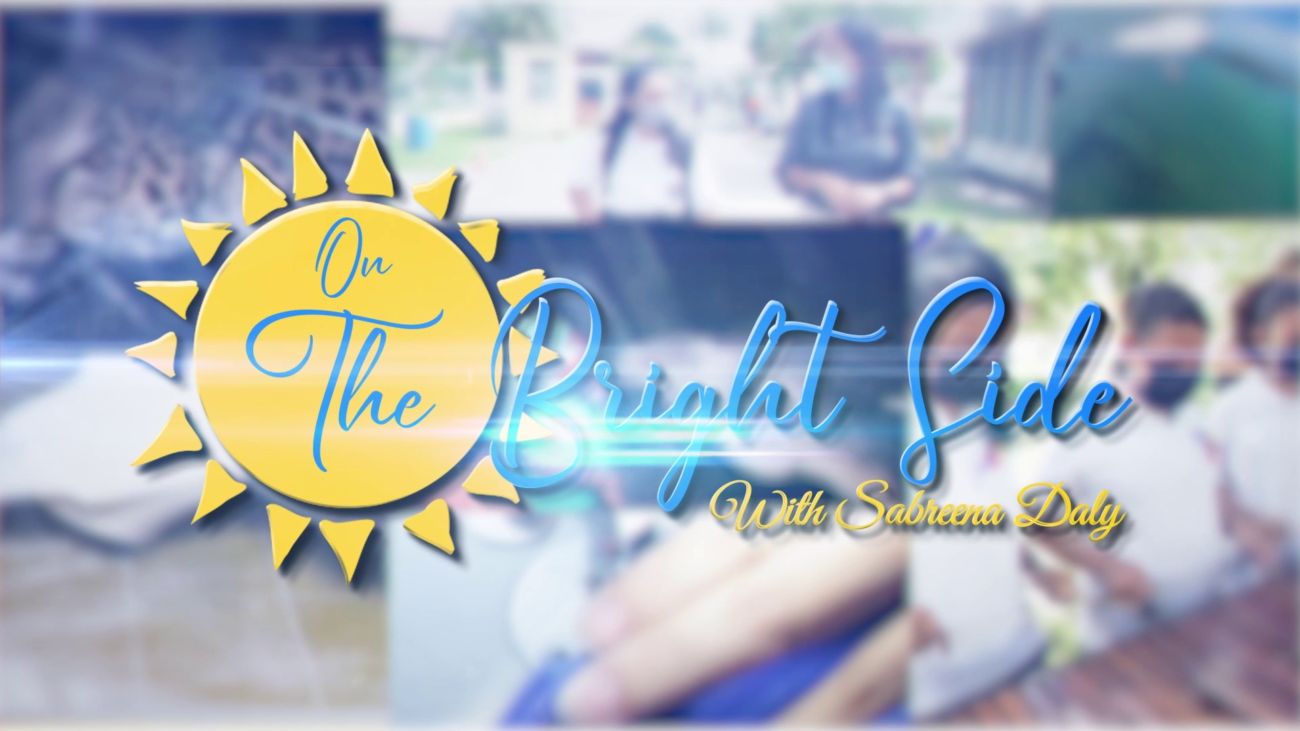

Facebook Comments